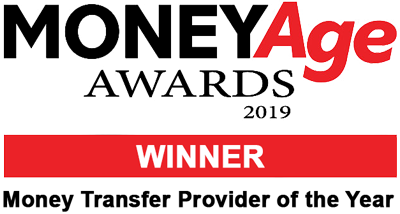Doing business in Canada
Quick, simple and transparent international transfers in Canadian dollars



How we can help your business makes its money transfers to and from Canada
Forward Contract
Forwards allow you to buy currency on an agreed future date at a pre-fixed rate. This may require a deposit and allows you to lock in a rate for up to two years.*
Spot Contract
This is an agreement between you and your FX provider to buy currency at the present exchange rate and can be used for imminent payments.
FX Orders
If you need a particular exchange rate but have no urgency to purchase straight away, an FX order could help you secure a better deal.
FX Options
Designed for foreign exchange rate management, options can be created as a bespoke solution for your business and its payment needs.**
A country known for vibrant cities, welcoming small towns, and expansive natural beauty, Canada lays claim to the 10th largest economy in the world. From pro-investment policies to quality local industries, there is much to capture the attention of those interested in doing business here.
The country welcomes foreign direct investment, it offers low business costs, and the North American Trade Agreement (NAFTA) offers access to the whole North American market. The workforce is skilled, the banking system is one of the world’s most stable, and the country offers a strategic location between North America and Asia.
With our guide, it cannot overstress the importance of complying with the Investment Canada Act. Compliance is necessary, regardless of the form of business you register.
In order to operate in the country, your Canadian investments must be reviewed in line with the act to make sure Canadians benefit from your business. Unless you are exempted specifically from doing so, you must file an application or notification for review.
You may find it encouraging to note that starting a new business or acquiring control of a Canadian business with less than $5 million in assets usually are exempt from review. Two exceptions are existing businesses that are connected to the country’s cultural or national heritage.
One of the first steps is choosing a form of business, such as a sole proprietorship, partnership, corporation, or joint venture. If you choose to operate as a corporation, you will need to decide whether to open a Canadian branch or to incorporate a subsidiary.
You’ll need to decide whether to incorporate provincially or federally. The latter lets you do business throughout the country under your company name, even if you may need to pay the occasional provincial registration or license fee.
Guide to business in Canada for foreigners
Is doing business in Canada easy?
Canada’s high ranking in the World Bank’s 2018 Ease of Doing Business Survey is well deserved. The ranking is not only due to the country’s excellent infrastructure and investment-encouraging policies. Other factors that contributed to the country’s ranking were the ease of starting a business, offering credit, and offering protection to minority investors.
Trade agreements with the US, Latin America, and Europe, a low corporate tax rate, financial stability, and incentives for research and development all contribute to the ease of doing business here. The two areas of the survey in which the country scored poorly were obtaining electricity and contract enforcement.
Why start a business in Canada?
From low corporate tax to a commercial environment that is welcoming of start-ups, there are plenty of reasons for starting a business here.
If you’re thinking of starting a business, there are few better places to do so than here and the numbers back this up. Forbes rated it the second best country in the G20 and 18th out of 189 countries for ease of doing business, according to The World Bank. The World Bank survey also finds that Canada is the second best in the world, and also has high rankings for gaining credit and protecting minority investors.
How to register a business in Canada
It is a very simply process that takes just a day and a half; the only requirements are filing for incorporation and registering for VAT. There are residency requirements for company directors in Canada, which means either you’ll need to be a landed immigrant with a Canadian address or enter into partnership with a Canadian citizen. Registration of a business is managed by the provinces, and the requirements vary from one to another, so check the specific requirements in the location you’ve chosen. You can opt for Federal incorporation if you intend to operate here.
There are rules for foreign investment; Federal rules require 25% of Directors to be resident, but provincial requirements vary on this matter – some provinces such as Nova Scotia, Quebec and the Yukon do not require any resident Directors, but others have higher requirements than the Federal rules. If you have an existing business that you wish to operate here, you can open a branch office or a subsidiary.
Canada has developed an environment which allows businesses to thrive, but it’s worth double checking the provincial as well as federal rules to see which will work best for your business model. When you’re developing your business plan, an international payments specialist can help you manage your investment and the costs and revenue with great rates, expert guidance and a wealth of currency tools to support your business.
What are the major industries in Canada?
The three biggest industries in Canada are natural resources, manufacturing and service industries. A large percentage of the exports are commodities, but there are also strong trade links with the US for the export of manufactured goods including cars, machinery, clothing and high technology equipment, including aerospace technology.
While commodities underpin the economy, services as well as new and digital industries are among the fastest growing. Cannabis production has seen revenue growth of 15.8% in the last year, and alongside traditional industries including corn farming and gold and silver ore mining, e-commerce, dating services and recruitment agencies all feature in the top ten fastest growing industries in terms of revenue growth. In this environment, innovation and novelty may be beneficial and it may be worth looking closely at trends and changes in demand to provide an indication of where there may be opportunities for growth.
What is the corporate tax rate in Canada?
One of the reasons many expats consider starting a business here is because of the low corporate tax rate. The corporate tax rate is 15%, but Canadian-controlled private corporations may be eligible to claim the Small Business Deduction, bringing the net tax rate down to 10%. Canadian-controlled private corporations (CCPCs) enjoy a number of benefits when it comes to taxation, with a combination of both tax credits and deductions.
Credits are available for R&D, farming and fishing in some regions, the creation of child care spaces and hiring apprentices. Tax deductions can be made for common business expenses including travel expenses, accounting and legal fees.
The tax year end in Canada is 31st March and returns must be filed within six months. Business tax in is relatively low and simple to file, which is part of the reason why it is ranked so highly as a place to start and grow a business.
Visit our Currency Zone to stay up to date on the pound to Canadian dollar rate and any market movements.
What are the challenges of conducting business in Canada?
On the surface, it appears that doing business there is a breeze – low taxation, effective trade agreements with the US, Latin America and Europe, financial stability and supportive environment for R&D and innovation are all appealing. However, there are some areas to be aware of when starting a business in Canada.
Construction permits, property registration and getting electricity are all time consuming. Construction permits require 12 separate steps which take an average of 250 days; getting electricity takes fewer steps but still takes an average of 140 days and even property registration is a five-step, four day process. The highly educated workforce fosters innovation, but there is a shortage of unskilled workers which means that if unskilled labour is required, perhaps on a production line, staff may be costly due to labour scarcity.
While international trade is relatively smooth, there are different provincial regulations – from customs procedures and packaging requirements to federal and provincial tax accounting and bilingual labelling. The system varies from province to province – for example, in Ontario, provincial VAT has been harmonised with Federal VAT for an overall rate of 13% but in other provinces, the two are not harmonised and the rates may vary. If you’re new to the area, having local staff who understand the various processes and requirements of each province can be invaluable.
Canada is known as an inclusive and welcoming society and this is reflected in the business culture. However, if you’re planning to do business in Quebec, business signage must be in French and if you’re working with Quebecois partners or suppliers, a working knowledge of French will help to build your relationships and prove to be an asset.
The costs of doing business in Canada
Generally speaking, the costs of doing business here are relatively low. Even so, the costs vary from place to place within the country. For example, it can be more expensive to open a business in Montreal or Toronto than in a small town in British Columbia. Start-up costs also are influenced by the relevant industry.
Among the costs to consider are registration and licensing fees, tools and equipment, inventory, office and/or warehouse space, utilities such as internet and phone, marketing, payroll, insurance, taxes, and shipping costs. The owners of average small businesses in Canada spent between $5,000 and $10,000 to start their businesses.
Get in touch & learn more about how we can send money to and from Canada



